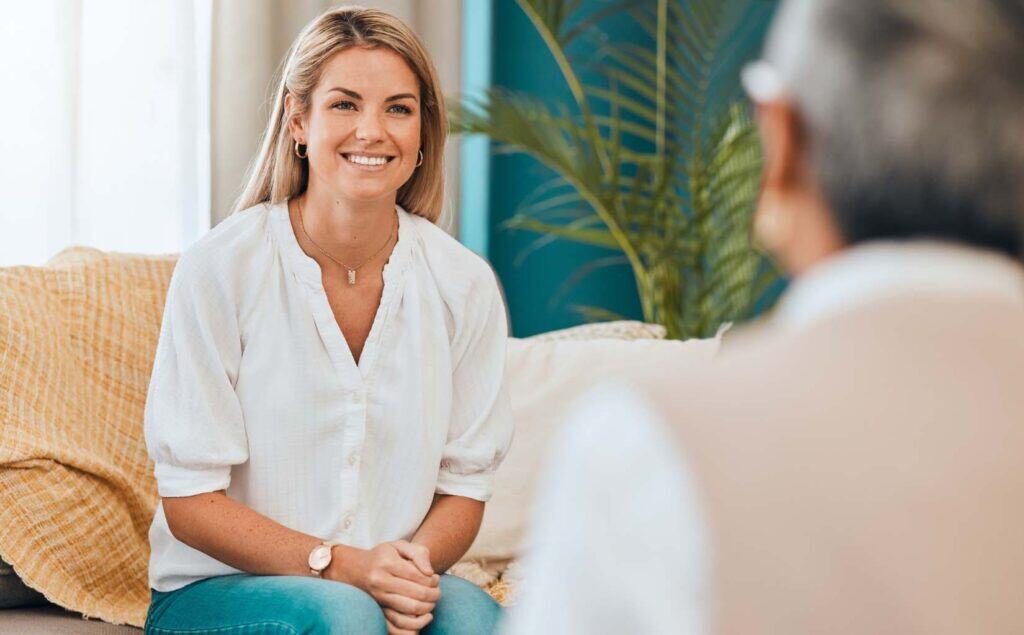At Recovery Home, healing from addiction doesn’t always mean stepping away from your daily life. Our Intensive Outpatient Program in Philadelphia offers a meaningful path to recovery, allowing individuals to receive high-quality care while balancing personal and professional responsibilities. Our facility, located in Philadelphia, offers a supportive environment that meets people where they are and helps guide them to where they want to be.
Whether you’re transitioning from a higher level of care or beginning your journey with structured support, our IOP is here to walk with you through each step. We combine clinical expertise with compassionate care, providing a program that’s both flexible and deeply effective.
Learning More About the Intensive Outpatient Program (IOP)
An Intensive Outpatient Program (IOP) is a structured form of addiction treatment that bridges the gap between inpatient rehab and traditional outpatient therapy. It’s ideal for individuals who require more support than weekly counseling, but who do not need 24-hour medical supervision.
According to a comprehensive review published by the National Library of Medicine, the evidence supporting IOP is strong. The review highlights multiple randomized clinical trials and quasi-experimental studies demonstrating the effectiveness of IOPs in treating substance use disorders.
At Recovery Home, our IOP in Philadelphia includes multiple sessions per week, focusing on group therapy, individual therapy, and holistic recovery practices. These sessions typically take place during the day or evening to accommodate work, school, and family commitments. Unlike residential treatment, IOPs allow you to live at home or in a supportive sober environment while participating in treatment.
Our Intensive Outpatient Program provides a consistent therapeutic experience, empowering clients to build real-life coping skills while staying actively involved in their daily routines.

Who Benefits From IOP?
Not everyone needs to enter a residential program to recover from substance use. Our Intensive Outpatient Program in Philadelphia is especially beneficial for individuals at various stages of recovery. whether they’re stepping down from a higher level of care, beginning their journey and seeking structured support with flexibility, or facing relapse and in need of renewed clinical guidance.
This level of care is also ideal for those who have a strong support system in place but need additional guidance in developing relapse prevention strategies, processing trauma, or improving emotional regulation.
What to Expect During Treatment
When clients begin IOP at Recovery Home, they’re welcomed into a safe, respectful, and non-judgmental environment. The process starts with a comprehensive clinical assessment, where we learn about your history, your goals, and the specific challenges you face. From there, we collaboratively create a plan of care tailored to your needs, rooted in evidence-based practices.
During your time in our program, you’ll typically attend treatment sessions several times a week. These include a mix of:
Individual Therapy
You’ll work one-on-one with a licensed therapist who will help you explore the roots of your addiction, process past experiences, and create goals for the future. Approaches like Cognitive-Behavioral Therapy (CBT), Internal Family Systems (IFS), and Motivational Interviewing help support long-lasting change.
Group Therapy
In group sessions, you’ll connect with others who understand what you’re going through. These sessions focus on sharing experiences, learning from others, and building a sense of accountability and community, something that’s often missing during active addiction. Over time, group members often form meaningful connections that reinforce positive behaviors and reduce feelings of isolation.
Family Therapy and Support
Addiction doesn’t just affect the person struggling; it impacts the entire family. Our Intensive Outpatient Program in Philadelphia offers optional family therapy sessions to help repair relationships, improve communication, and foster healing at home. These sessions also provide loved ones with a better understanding of addiction, helping to reduce blame and build empathy.
Education and Skills Building
Recovery is not just about stopping substance use; it’s about learning how to live well. Our IOP curriculum includes relapse prevention strategies, emotional regulation skills, coping tools, and education about the science of addiction. Clients gain practical tools they can apply immediately to navigate real-world challenges and maintain long-term recovery.
Case Management and Aftercare Planning
Throughout the program, our case management team supports your logistical needs, whether it’s finding sober housing, connecting to employment resources, or arranging long-term aftercare. Recovery doesn’t stop when IOP ends. We’re here to help you plan your next step with confidence.

Clinical Approach: Evidence-Based and Human-Centered
Every element of our IOP is built on proven modalities that address the whole person, not just the addiction. Some of the treatment methods integrated into our IOP include:
- Trauma-Informed Care: Recognizing and addressing the impact of trauma on substance use.
- Cognitive-Behavioral Therapy (CBT): Identifying and changing negative thought patterns.
- Dialectical Behavioral Therapy (DBT): Building emotional regulation and interpersonal effectiveness.
- Motivational Interviewing: Strengthening internal motivation to change.
- Internal Family Systems (IFS): Healing internal conflicts and wounded parts of the self.
- Recovery Coaching: Working with trained professionals who provide guidance and accountability outside therapy sessions.
This integrated clinical approach helps clients not only understand the underlying causes of their substance use but also develop the emotional strength and clarity needed to move forward. By combining proven methods with compassionate care, we create a space where real, lasting recovery can take root.
Getting Started with Our IOP in Philadelphia
Beginning treatment may feel like a big leap, but at Recovery Home, we make the process straightforward and supportive. Here’s how we get started with our Intensive Outpatient Program in Philadelphia:
- Initial Contact: Reach out by phone, email, or our website’s contact form. Our admissions team will speak with you directly to understand your needs and answer any questions you have.
- Clinical Assessment: Once we’ve had an initial conversation, we’ll schedule a comprehensive clinical assessment. This is typically done in person. During this session, a licensed clinician will explore your substance use history, mental health, living situation, and overall goals for treatment.
- Personalized Treatment Plan: Based on your assessment, we’ll develop a treatment plan that reflects your unique challenges, strengths, and schedule. This plan will outline therapy sessions, group involvement, and any additional support services that may benefit your recovery.
- Insurance Verification and Scheduling: Our team will handle insurance verification and walk you through any financial or logistical concerns. We’ll also help you choose a treatment schedule, day or evening sessions, based on your availability and responsibilities.
- Start Your Recovery Journey: With everything in place, you’ll begin attending IOP sessions. From your first day, you’ll be welcomed into a supportive, professional community that’s here to support you every step of the way.
Whether you’re taking this step for yourself or supporting someone else, we’re here to make the transition into care as smooth and empowering as possible.

Life After IOP
The end of IOP isn’t the end of the recovery journey; it’s a milestone. At Recovery Home, we take aftercare seriously. Before completing the program, each client works with our team to create a personalized aftercare plan. This may include continued outpatient therapy, support groups, or medication-assisted treatment (if appropriate). We stay connected with clients as they move forward, offering continued support and encouragement. Long-term recovery is possible, and we’re honored to be part of that journey.
